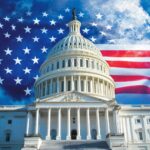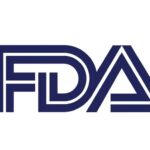SILICON VALLEY, CA – In a landmark move that signals a new era of technological cooperation, leading tech giants announced today the formation of the “Global AI Safety Coalition” (GAISC), committing $2 billion to ensure responsible artificial intelligence development.
The unprecedented alliance, led by Google, Microsoft, OpenAI, and other major tech companies, aims to establish comprehensive safety standards for AI development and deployment. The coalition represents the largest-ever joint effort by tech companies to address AI safety concerns.
Key Initiatives of the Coalition:
1. Safety Standards Development
– Creation of universal testing protocols for AI systems
– Establishment of emergency shutdown procedures
– Implementation of bias detection frameworks
– Regular security audits and vulnerability assessments
2. Financial Commitment
– $2 billion investment over five years
– $500 million dedicated to independent research
– $800 million for safety infrastructure development
– $700 million for monitoring and compliance systems
Dr. Sarah Chen, newly appointed Executive Director of GAISC, emphasized the coalition’s significance: “This isn’t just about setting guidelines; it’s about fundamentally changing how we approach AI development. We’re moving from competition to collaboration in ensuring AI safety.”
The initiative includes several groundbreaking measures:
– Creation of a shared AI testing facility in Nevada
– Establishment of a rapid response team for AI-related incidents
– Development of an industry-wide AI risk assessment framework
– Formation of an independent oversight board
Tech Industry Impact:
The announcement has sent ripples through the tech industry, with smaller companies and startups expressing interest in joining the coalition. Market analysts note that major tech stocks saw significant gains following the announcement, with AI-focused companies seeing the largest increases.
Public Response:
Privacy advocates have cautiously welcomed the move while calling for greater transparency. “This is a step in the right direction,” said Privacy International spokesperson James Morrison, “but we need to ensure this coalition remains accountable to the public.”
Government Reaction:
The U.S. Department of Commerce has expressed support for the initiative, with Secretary Thompson stating: “This private sector leadership complements our government’s efforts to ensure AI development benefits all Americans while maintaining our technological edge.”
Implementation Timeline:
– Q1 2025: Initial safety standards publication
– Q2 2025: Testing facility operational
– Q3 2025: First industry-wide AI safety audit
– Q4 2025: Global compliance framework launch
Critics and Challenges:
Some industry observers have raised concerns about potential anti-competitive effects and the exclusion of smaller players. The coalition has responded by announcing plans for a small business inclusion program and reduced membership fees for startups.
Global Impact:
The European Union and several Asian countries have indicated interest in adopting the coalition’s standards, potentially making them de facto global requirements for AI development.
Next Steps:
The coalition will begin operations next month from its headquarters in Silicon Valley, with regional offices planned for London, Singapore, and Tel Aviv. Member companies have agreed to implement initial safety protocols within their AI development programs by the end of the quarter.
The formation of this coalition marks a significant shift in how tech companies approach AI development, prioritizing safety and collaboration over competition in this crucial area of technological advancement.






